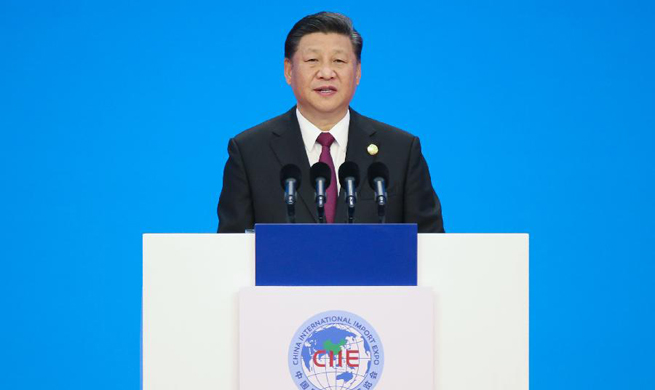BEIJING, Nov. 8 (Xinhua) -- China's social media posts are receiving more likes from users. A new report shows that Chinese netizens think social media brings positive impacts to their lives, rating the level of positivity at 80.6 on a 100-point scale.
The Social Media Impact Report 2018, by consultancy company Kantar China, was based on an online survey of 242,000 respondents registered under their real names in 60 Chinese cities from Sept. 14 to 20.
A total of 10 social media platforms were involved in the survey, including instant messenger WeChat, microblog Sina Weibo and applications of e-commerce, video and news that have social functions.
WeChat was the only social media application whose positive rating dropped from the previous year, edging down from 83.5 to 80.6.
The top three positive impacts are increasing communication (73 percent), following news (69 percent) and gaining knowledge (66 percent).
More people are using social media to relax and shop this year. About 57 percent of respondents feel social media can "relieve pressure in real life," up 12 percentage points from a year ago; and 61 percent say that social media can help them "make better shopping decisions," a nine-percentage-point increase from 2017.
About 76 percent of respondents use WeChat for work, and 76 percent are happy about that.
Only one percent of respondents think there is no positive impact at all.
However, 93 percent of respondents agree that social media can also have negative impacts, such as "worsening eyesight" (49 percent), "lack of sleep" (47 percent), "less book reading time" (46 percent) and "poor protection of privacy" (44 percent).
Furthermore, the report found that more web users are becoming active on social media. About 40 percent of respondents think they have active interactions online, up eight percentage points from last year.
Only 12 percent say they are totally silent, choosing to "just read and not comment," compared with 21 percent in 2017.
According to the survey released Wednesday, 31 percent of respondents were aged between 15 to 24, 30 percent between 25 to 34, 23 percent between 35 to 44 and 16 percent above 45.

















